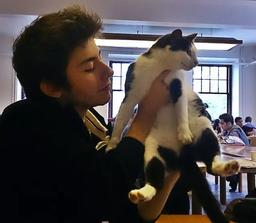The suffixes -Dİk and -(y)EcEk are used when relativizing:
- The direct object
- The indirect object or the adverb
- The possessor of a genitive-possesive constituent which is not the subject
- The possessed of a genitive-possesive constituent which is not the subject
The difference between -Dİk and -(y)EcEk is that -(y)EcEk refers to future events, whereas -Dİk refers to non-future events, for example events in the past or in the present. Just as with -(y)En, adverbs are used to give detailed information about the time an event occurs.
Clauses with -Dİk and -(y)EcEk are always genitive-possessive constructions. Below you can see two sentences where the direct object is relativized.
| Full sentence | Relativized version |
|---|---|
| (Ben) makale okudum. I read an article. | (Benim) okuduğum makale The article that I read |
| Kamil makale okuyor. Kamil is reading an article. | Kamil'in okuduğu makale The article that Kamil is reading |
Note how the subjects of the sentences have become the possessor and the objects of those sentences have become the possessed part in the genitive-possesive constituent. If the subject of the relativized sentence is a pronoun, it can be omitted both in the original sentence, and in its relativized form.
Below are examples of both -Dİk and -(y)EcEk when relativizing a direct object.
| Full sentence | Relativized version |
|---|---|
| Makaleyi okuyorum. I'm reading the article. | (Benim) okuduğum makale The article that I am reading/have read |
| Ödevimi yapacaksın. You will do my homework. | (Senin) yapacağın ödevim My homework which you will do |
Below are examples of both -Dİk and -(y)EcEk when relativizing an indirect object.
| Full sentence | Relativized version |
|---|---|
| (Biz) mektubu öğretmene vereceğiz. We will give the teacher the letter. | (Bizim) mektubu vereceğimiz öğretmen The teacher to whom we will give the letter |
| Çocuklar ayılardan korkarlar. Children are afraid of bears. | Çocukların korktuğu ayılar The bears that children are afraid of |
Note how the case suffixes on ayılar and öğretmen disappear when in relativized form.

